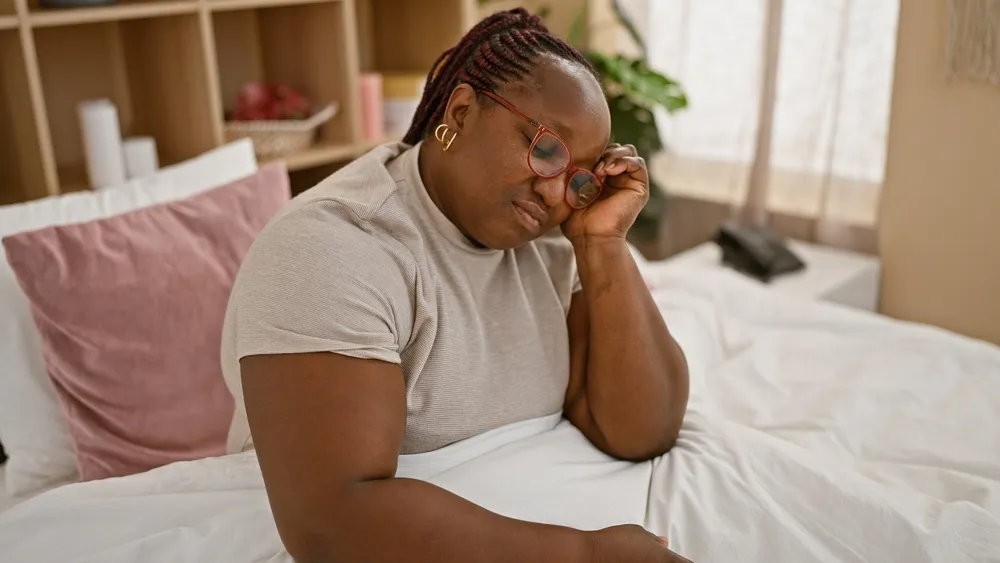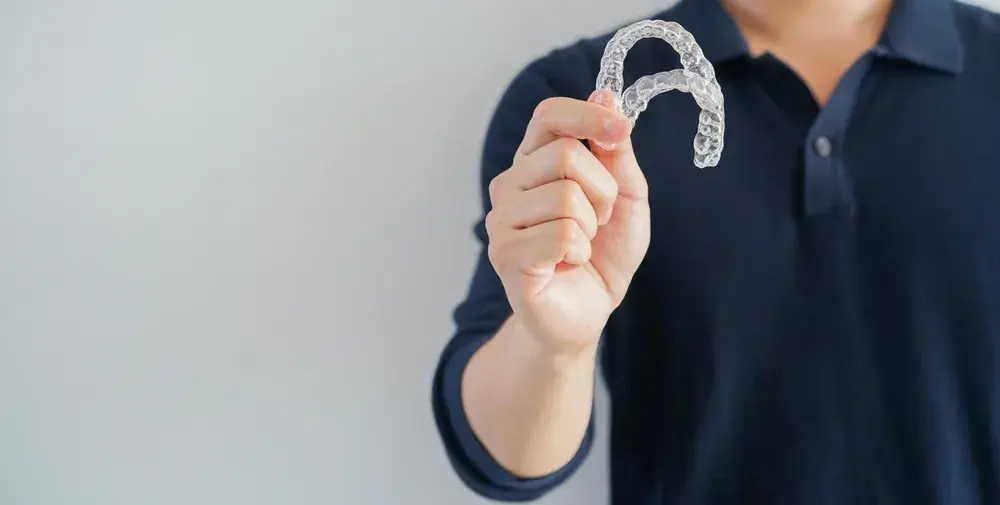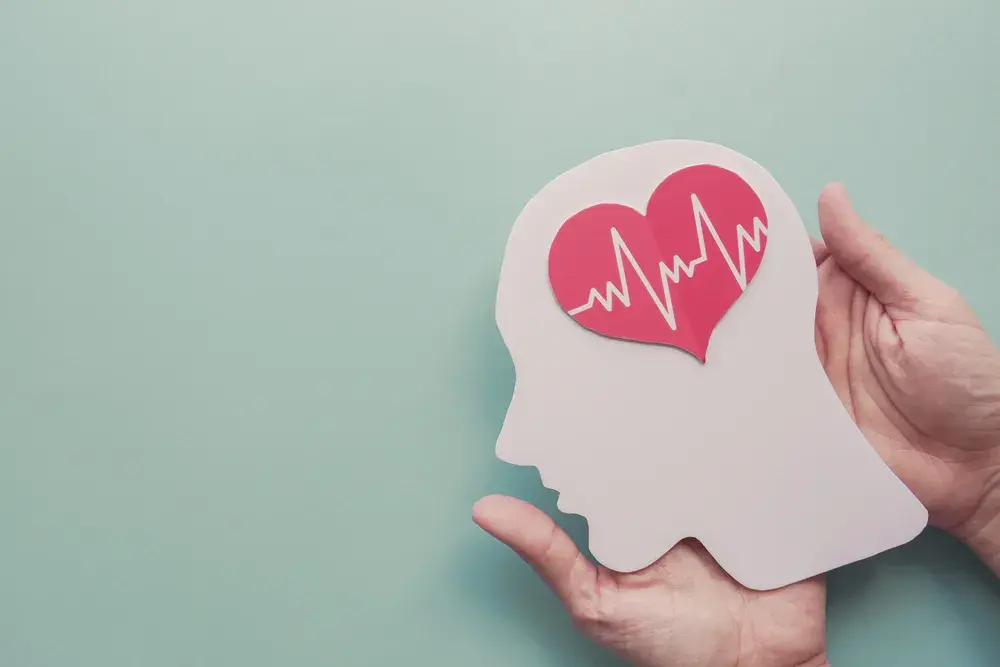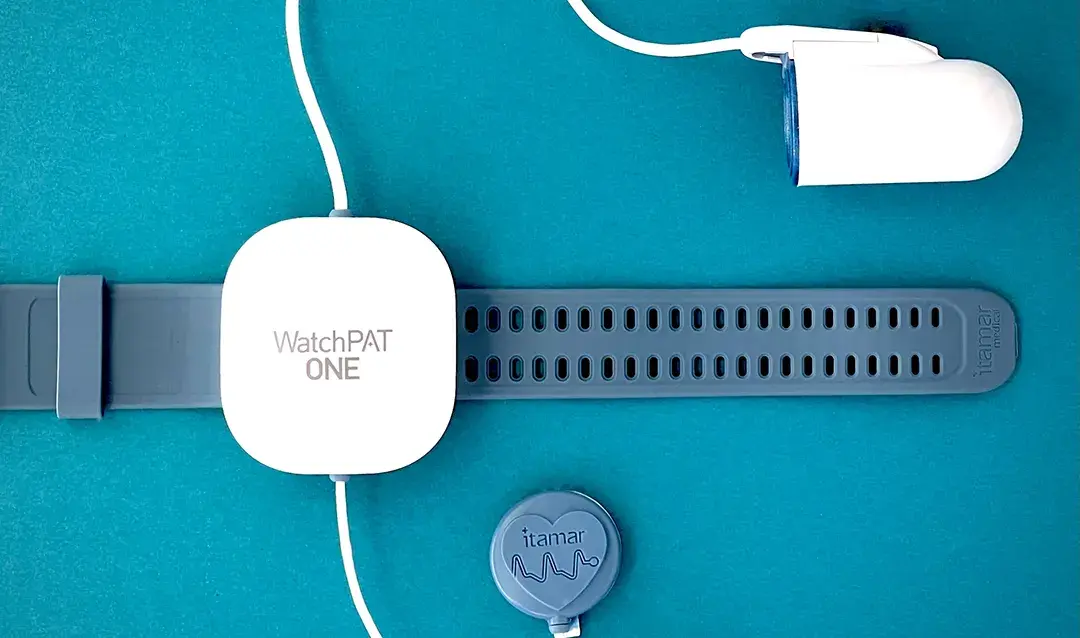Sleep Apnea and Morning Headaches: What's the Connection?
Are your morning headaches a sign of sleep apnea? Learn how sleep apnea could be behind those pressing headaches and what steps you can take to find relief

If you suffer pressing headaches on both sides of your head right after waking up, it could be telling you something about your sleep apnea.
Headaches come in many flavors—cluster, migraine, tension, hypertension, in-law-induced, the list goes on. But sleep apnea has a tendency to cause a specific kind of headache.
In fact, the connection is so common that as providers, headaches are one of the first things we ask about when screening patients for sleep apnea.
What does a sleep apnea headache feel like?
Not good. But to be more specific, classic sleep apnea headaches typically occur on both sides of your head, feel like a steady “pressing” pain, and occur immediately upon waking. This is in contrast to the pulsing pain of migraines and the “rubber-band-around-your-head” effect of tension headaches.
In one of the major studies on these sorts of headaches, patients shared common characteristics like headaches being of short duration (around 30 minutes) and occurring more than 15 days per month.1 If you have headaches that match this classic description, it may warrant being evaluated for sleep apnea.
What if I have headaches, but not like those?
You could call the headaches I've described as “textbook” sleep apnea headaches, but it’s not uncommon for me to see sleep apnea patients who don’t fit the textbook definition.
If that’s you, just know that the simple presence of a headache after waking up may warrant further evaluation for sleep apnea if other symptoms are present, like excess sleepiness, morning dry mouth, snoring/gasping/choking while sleeping, insomnia, etc.
Why does sleep apnea cause headaches?
Great question! We don’t know. Not for sure, anyway.
Providers like to speak confidently about diseases, but the truth is, there is still so much that is not fully understood about headaches in general and sleep apnea headaches specifically. There are, however, a few plausible theories:
1. Decreased Oxygenation
We know that sleep apnea causes your oxygen to drop while you sleep (because it makes you stop breathing), so it’s possible that these headaches are triggered by repetitive episodes of low oxygen that then interferes with brain oxygenation.2 But many sleep apnea patients don’t suffer headaches at all - even patients whose oxygen drops significantly.
3. Carbon Dioxide Buildup
When you breathe, you’re actually blowing out carbon dioxide to get it out of your bloodstream. When sleep apnea causes you to stop breathing, the carbon dioxide builds up, which also affects your brain.
Elevated carbon dioxide in the brain is known to cause a dilation, or widening, of the blood vessels, and some think that this is the factor responsible for sleep apnea headaches.3
3. Sleep Fragmentation
When you stop breathing due to sleep apnea, the body is forced to wake you up just enough so you start breathing again. Even if your sleep apnea is only mild to moderate in severity, this can happen 40 - 240 times a night…!
No, that’s not a typo.
That many interruptions in your sleep (what we call “sleep fragmentation”) is associated with a large number of downstream health problems, and may be the reason apnea sufferers have morning headaches.3
Keep in mind these are all hypotheses based on biological mechanisms that we know happen during apneic events, but not any single one of them has been definitively shown to be the actual reason these headaches occur. The good news, however, is that it probably doesn’t matter because…
Treating Sleep Apnea Resolves Headaches
And fast, too.
While we may not have a perfect explanation of the reasons for these headaches, the research on how to solve them is incredibly positive… just treat your sleep apnea!
A study published in Cephalalgia (a very exciting medical journal about headaches), found that sleep apnea patients who started therapy saw headaches disappear in 90% of cases.4
Another study found that 62% of patients responded to sleep apnea treatment with at least a 30% reduction in the frequency of their headaches.5
One study in another thrilling headache journal reported that 81.3% of patients with sleep apnea headaches responded to effective sleep apnea treatment within 72 hours.1
What this means is that, even if you end up figuring out sleep apnea is the reason you get these headaches, you can be confident that treatment will have a positive effect in relieving them.
The studies mentioned were conducted using CPAP (a breathing mask that pushes air into your lungs while you sleep) as the treatment option, but the therapeutic benefits for headache relief are likely to be similar when using Oral Appliance Therapy (a custom-fitted oral device that feels like a retainer).
Learn More: Do oral appliances for sleep apnea work just as well as CPAP machines?
And considering many patients find that the comfort and accessibility of these oral devices make it easier to keep up with using them every night, it may, in fact, be more effective at treating sleep apnea headaches since patients can actually stick to the treatment long-term.
So how do I figure out if sleep apnea is causing my headaches?
Talking about headaches is a great way to get one - from a science perspective, they’re complex and patients report an incredibly broad variety of associated symptoms that can make determining the source of your headache pretty challenging.
Fortunately, we have a straightforward way to determine whether sleep apnea is causing your morning headaches. First, start with our free sleep assessment to check your risk level for sleep apnea. Based on your results, our medical team can recommend an at-home sleep study to confirm whether you have sleep apnea and if needed, help you access the treatment you need.
Suzuki K, Miyamoto M, Miyamoto T, Numao A, Suzuki S, Sakuta H, Iwasaki A, Watanabe Y, Fujita H, Hirata K. Sleep apnoea headache in obstructive sleep apnoea syndrome patients presenting with morning headache: comparison of the ICHD-2 and ICHD-3 beta criteria. J Headache Pain. 2015;16:56. doi: 10.1186/s10194-015-0540-6. Epub 2015 Jun 19. PMID: 26103955; PMCID: PMC4478186.
Russell MB, Kristiansen HA, Kværner KJ. Headache in sleep apnea syndrome: epidemiology and pathophysiology. Cephalalgia. 2014 Sep;34(10):752-5. doi: 10.1177/0333102414538551. Epub 2014 Jun 13. PMID: 24928423.
Spałka J, Kędzia K, Kuczyński W, Kudrycka A, Małolepsza A, Białasiewicz P, Mokros Ł. Morning Headache as an Obstructive Sleep Apnea-Related Symptom among Sleep Clinic Patients-A Cross-Section Analysis. Brain Sci. 2020 Jan 19;10(1):57. doi: 10.3390/brainsci10010057. PMID: 31963788; PMCID: PMC7016602.
Goksan B, Gunduz A, Karadeniz D, Ağan K, Tascilar FN, Tan F, Purisa S, Kaynak H. Morning headache in sleep apnoea: clinical and polysomnographic evaluation and response to nasal continuous positive airway pressure. Cephalalgia. 2009 Jun;29(6):635-41. doi: 10.1111/j.1468-2982.2008.01781.x. Epub 2009 Feb 2. PMID: 19187338.
Park, J.W., Mehta, S., Fastlicht, S. et al. Changes in headache characteristics with oral appliance treatment for obstructive sleep apnea. Sci Rep 11, 2568 (2021). https://doi.org/10.1038/s41598-021-82041-6




